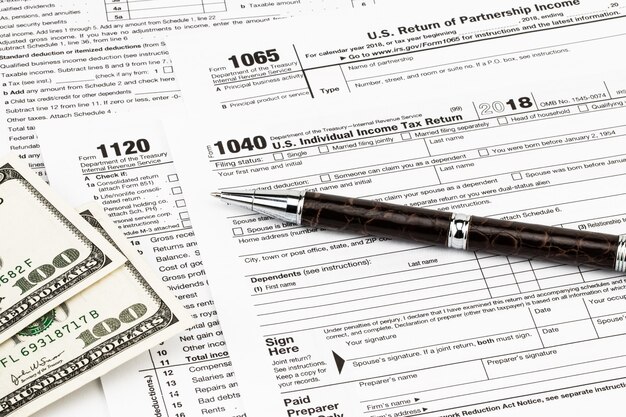Your Guide to Who Is Exempt From Social Security And Medicare Withholding
What You Get:
Free Guide
Free, helpful information about Medicare Insurance and related Who Is Exempt From Social Security And Medicare Withholding topics.
Helpful Information
Get clear and easy-to-understand details about Who Is Exempt From Social Security And Medicare Withholding topics and resources.
Personalized Offers
Answer a few optional questions to receive offers or information related to Medicare Insurance. The survey is optional and not required to access your free guide.
Who Doesn't Need to Pay Social Security and Medicare Taxes?
Navigating the labyrinth of taxes can be daunting, especially when it comes to understanding who is exempt from certain obligations. While most working Americans are familiar with the deductions for Social Security and Medicare on their paychecks, not everyone is required to pay these taxes. Understanding who is exempt from Social Security and Medicare withholding can unveil paths to untapped financial resources and opportunities.
Who is Exempt from These Taxes?
For most American workers, paying Social Security and Medicare taxes is a given. However, certain groups are exempt, and it’s crucial to determine if you fall into one of these categories:
Religious Groups: Some members of religious groups can opt out of Social Security and Medicare taxes if their religious group has a conscientious objection to accepting private insurance payments, including Social Security and Medicare benefits. This exemption is not automatic and requires filing Form 4029.
Foreign Government Employees: Non-resident aliens working for a foreign government, international organizations, or on specific types of visas may be exempt, as their work doesn't fall under U.S. Social Security and Medicare coverage.
Non-U.S. Students, Scholars, and Trainees: Those on F-1, J-1, M-1, or Q-1 visas may be exempt from Social Security and Medicare payments, provided they work in accordance with their visa status.
Certain Government Employees: Some state and local government employees covered by a public retirement system, rather than Social Security, might not need to pay these taxes.
Family Employees: Children under the age of 18 working for their parents in a family business, as well as parents employed by their children under specific conditions, can be exempt.
Implications of Exemptions
While these exemptions can offer immediate financial relief by reducing withholding from your paycheck, they also mean you may not receive Social Security or Medicare benefits in the future. Thus, it is essential to explore alternative financial planning options to secure your future.
One potential avenue is to look into government aid programs that provide financial assistance. Being exempt from these taxes might actually encourage individuals to seek other forms of support, be it for housing, education, or debt relief.
Exploring Alternative Financial Assistance
Besides relying on exemptions, many Americans benefit from various financial assistance programs that can alleviate the burden of education, housing, and debt:
Educational Grants and Scholarships: Numerous opportunities exist to help cover tuition without the heavy burden of loans. From federal Pell Grants to scholarships offered by private foundations, these resources ensure education remains within reach.
Government Aid Programs: Programs like SNAP (Supplemental Nutrition Assistance Program) and TANF (Temporary Assistance for Needy Families) can provide necessary support for those who qualify.
Debt Relief Options: For those struggling with credit card debt, exploring debt management programs or even seeking a financial advisor can pave the way to financial freedom.
Exploring these options requires careful planning and thorough research but can lead to significant financial empowerment.
Ready to Explore? Discover Financial Resources at Your Fingertips!
📚 Educational Opportunities
- Pell Grants: Aid for low-income students attending college.
- Merit-Based Scholarships: Reward academic excellence and extracurricular achievements.
💼 Financial Assistance Programs
- SNAP: Helps low-income individuals and families afford food.
- Housing Vouchers: Assistance in affording decent and safe accommodation.
💳 Credit Solutions
- Debt Management Programs: Help with reducing interest rates and establishing repayment plans.
- Credit Counseling Services: Guidance in managing and improving credit scores.
Whether you're considering applying for exemptions or delving into the realm of financial aid, being informed and proactive is your ticket to a financially secure future.
What You Get:
Free Medicare Insurance Guide
Free, helpful information about Who Is Exempt From Social Security And Medicare Withholding and related resources.

Helpful Information
Get clear, easy-to-understand details about Who Is Exempt From Social Security And Medicare Withholding topics.

Optional Personalized Offers
Answer a few optional questions to see offers or information related to Medicare Insurance. Participation is not required to get your free guide.


Discover More
- Am I Elgible For Medicare
- Am I Enrolled In Medicare
- Am I Qualified For Medicare
- Are Adult Diapers Covered By Medicare
- Are Chemotherapy Drugs Covered By Medicare Part d
- Are Colonoscopies Covered By Medicare
- Are Covid Tests Covered By Medicare
- Are Cpap Machines Covered By Medicare
- Are Cpap Supplies Covered By Medicare
- Are Dental Implants Covered By Medicare
